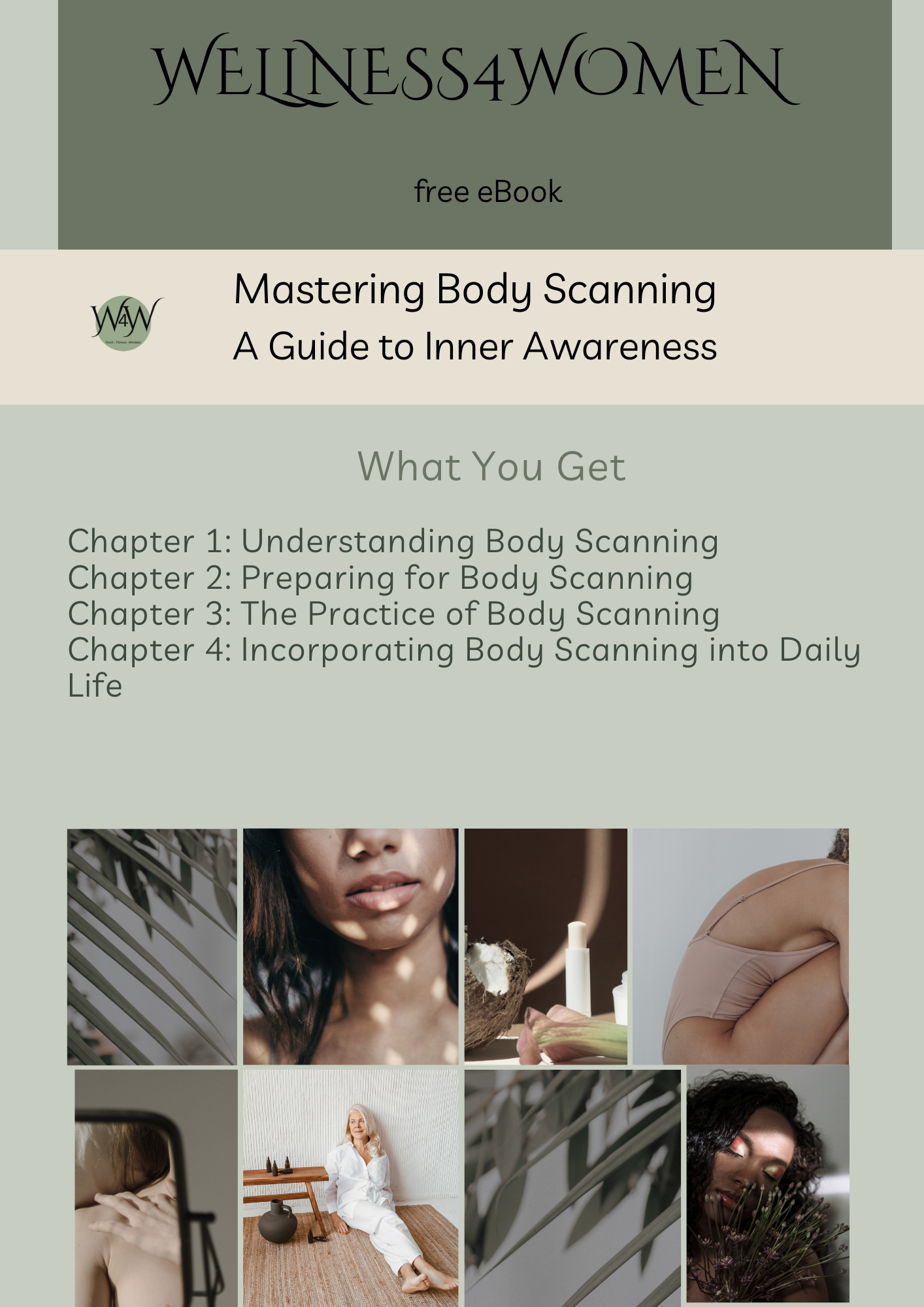
Photo by Lesly Juarez on Unsplash
06 June 2023
As human beings, we are responsible for caring for and keeping our spirit and soul well. How do I know that? Look at this scripture and contemplate upon it.
1 Corinthians 6:19 What? Don’t you know that your body is the temple of the Holy Spirit which is in you and which you have from God, and that you are not your own?
1 Corinthians 6:19 points out that your spirit and soul (mind & body) belong to God, your creator. We must look after ourselves because we are the custodians and have become Holy by God in dwelling.
This puts a whole different spin on who I am, why I am here and what I need to do. It clarifies my purpose and gives me a sense of value and self-worth. And because I have value and self-worth, I desire to look after my whole self.
If this subject interests you, I invite you to learn how to care for the Holy Temple, which is you.
What is Mindfulness?
Let’s start off by exploring our attitude and mental health. This is a great place to start because if our minds are not in a good place, then nothing will be okay.
For those new to mindfulness, let’s dive in and answer the question -what is mindfulness?
Mindfulness is a practice where you pay attention to the present moment without judging it. What do I mean by judgment? Simply put, it’s about accepting the moment as you find it.
Mindfulness helps you be aware of what you’re doing, feeling, or experiencing at any time.

Photo by Motoki Tonn on Unsplash
To practice mindfulness, you can start with these simple steps:
- Find a comfortable and quiet place to sit or stand without distractions.
- Close your eyes, and take a few deep breaths, becoming aware of your breath moving in and out of your body.
- Focus on your breath and try to clear your mind by not engaging with thoughts or feelings that arise.
- If you get distracted, gently bring your focus back to your breath.
- Continue for a few minutes, gradually increasing the time as you feel comfortable.
Remember, mindfulness is not about achieving a specific result or outcome. But instead, it is about being present and aware of the moment for you to enjoy.
In my Top Ten Tips, you will learn that mindfulness can help in a variety of ways, helping you to succeed.

Photo by Jeremy Bishop on Unsplash
My Ten Top Tips to How Mindfulness Helps You
I have discovered great ways to reach my life’s goals. One of those ways is the daily practice of mindfulness. When I am well, whatever task I am working on goes well. But I can’t focus on the task before me when I am struggling. Here are my Top Ten Tips on why practising mindfulness can be beneficial.
1. Increases Focus and Attention
As we age, our cognitive abilities can decline, and mindfulness helps sharpen our focus and attention, aiding in higher cognitive function.
I am dyslexic, so I sometimes struggle with short-term memory issues. So mindful training helps me focus on what I need to remember; it trains my brain and works for me!
2. Teaches Self-awareness
Self-awareness is an essential factor in well-being, health, and happiness. Mindfulness teaches you to be present and attentive, deepening your understanding of your needs.
3. Lowers Blood Pressure
Science has shown that a calm mind lends to a calm body. Mindfulness practice can help to lower blood pressure, which is essential for those over 60’s who may be at higher risk for cardiovascular disease and stroke.
Practising mindfulness regularly reduces stress and anxiety levels lowering you blood pressure. Mindfulness techniques help to manage stress and anxiety levels. Managing stress is particularly beneficial during times of transition. Let’s face it, we live in a world of constant change, and with change comes the inevitable times of transition.
There is plenty of scientific studies proving that mindfulness improves emotional regulation. Emotional regulation allows individuals to better manage their feelings.

4. Boosts Immunity
All of us have been, and, in many cases, still affected by the COVID virus. Because of COVID, our immune system has taken a battering, and we need to strengthen it to help our body to withstand inevitable germ or viral attacks. Robust studies have shown that mindfulness can strengthen the immune system, which can be particularly helpful for active and older adults.
5. Improves Sleep
Why should you keep dragging yourself through the day exhausted? Put a halt to tiredness by practising mindfulness just before you go to bed. Regular mindfulness practice has been linked to a better quality of sleep, which can help prevent a range of health issues.

Photo by Kate Stone Matheson on Unsplash
6. Reduces Symptoms of Depression
I am sure that most of us have experienced depression in our lives?—?I certainly have.
I have suffered post-natal and PSD depression and found that mindfulness effectively reduces the symptoms. Mindfulness can be particularly beneficial for those at a higher risk for depression or other mental health issues.
7. Enhances Compassion and Empathy.
Mindfulness training can encourage individuals to be more compassionate and empathetic. How? When you become more self-aware, you naturally understand how others may feel. You can better walk a mile in others’ shoes, improving relationships and social connections.

Photo by Giulia Bertelli on Unsplash
8. Promotes Cognitive Flexibility
Mindfulness aids cognitive flexibility by encouraging you to be more open and accepting of new experiences and perspectives. Flexible thinking can be valuable as you age and face changing circumstances.
What is cognitive flexibility?
Cognitive flexibility allows us to see what is not working and make the appropriate changes to achieve our objectives.
For example, if you usually take the same route to work, but there are now roadworks on your usual route? Despite the delay, some people remain rigid and remain with the original plan.
With more flexible thinking, people adapt to the unexpected and problem-solve to find a solution.
Being mindful can train your brain and emotions to be flexible so you are more apt to adapt to and cope in any situation.
9. Mindfulness Makes you Happier.
Doing things that you enjoy boosts your total well-being. Simple activities can improve your day. As you become ‘mindful’ of your activity and the joy it brings you, you draw more out of that long-lasting experience.

Photo by Slav Romanov on Unsplash
10. It’s Good to Talk
Communication is essential to wellness. Whether face-to-face, on social media or over the phone. Talking things through helps you to release pent-up tension and order your thought patterns.
By becoming mindful, you can better focus on what is bugging you. It can help you to get to the root of the problem instead of regurgitating the same old feelings.
Thank you for reading to the end. For more Tips visit, Your Wellness Matters. www.paularoseparish.com. We collect Donations for Welsh Women’s Aid.
With over 40 years of experience, I have worked internationally having Bachelor of Pastoral Counselling and Theology, Master of Arts in Counselling & Professional Development. BACP Life Coaching Certificate. I currently work as a Christian educator, blogger, author and I am a grandmother and live with my two dogs in Wales UK.
If you find my articles like this valuable and want to support my work, then please share my articles across the platforms you use- Thankyou
You’ll find my book’s on Amazon.com and If you wish to connect with me, please do so on paularoseparish@gmail.com
?Want to help support me as an author? My books are available at AMAZON.COM
?Nothing Good about Grief: Path to Recovery with Psalm 23 after COVID-19 & other losses.
?Psalm 23 Unwrapped: Hope in Difficult Times.




